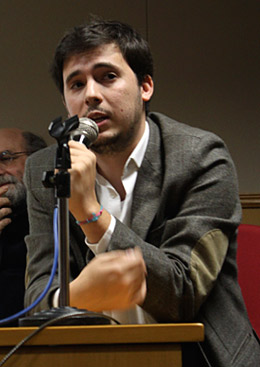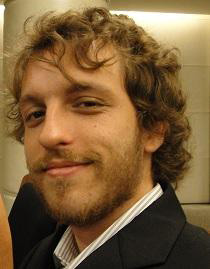
By Andrew Cohen
As a visiting scholar at the University of Edinburgh two years ago, Professor Jonathan Simon ’87 saw the impact of Berkeley Law’s Center for the Study of Law & Society (CSLS). “Edinburgh’s law and society program was based on the template CSLS created,” he said. “In talking with faculty there who spent time in Berkeley, it was clear how strongly the center influenced their research.”
Now in his first semester as CSLS director, Simon wants to enhance the experience for top international doctoral students. This academic year, the center is housing 25 visiting scholars from Australia, Brazil, Canada, China, Great Britain, Japan, the Netherlands, and the U.S.
“Law is traditionally an autonomous field, and the idea of having a space for interdisciplinary research and collaboration is still unfamiliar in parts of the world,” Simon said. “But more and more, people are realizing that this approach to legal education better serves both students and modern legal practice.”
Created in 1961 as the first center of its kind, CSLS is a well-established leader in socio-legal study and methodology. Its current roster of visiting scholars champion the center’s push to challenge conventional legal and policy wisdom, and to reframe legal decision making and discourse.
The impressive group of scholars includes Francisco Cruz, coordinator of the University of Sao Paulo Law School’s Internet, Law & Society Nucleus. Cruz, who won Brazil’s Internet Framework Bill & Development Award, is researching privacy issues related to Internet regulation and user rights.
“CSLS is a model for socio-legal studies,” he said. “It involves scholars from different backgrounds who engage in profound discussions of method and take different approaches to legal research without the unnecessary boundaries [among disciplines] in Brazilian law schools.”
International alliance
Simon and Professor Calvin Morrill, associate dean of Berkeley Law’s Jurisprudence and Social Policy Program and former CSLS director, are working together to build capacity for socio-legal studies abroad.

Morrill helped launch the Brazilian Network of Empirical Legal Studies, a group of professors and doctoral students in Brazil working to develop theories and methods for empirical research on that country’s legal system. The group recently founded the Brazilian Journal of Socio-Legal Studies, on which Morrill is an editorial board member.
Last year, the group created a competitive internship program in which top doctoral students are picked to be visiting researchers at the center. This year’s selections were Cruz and Pedro Butelli, who is evaluating the impact of increased security policy activity in Brazilian slums and divorce-related legal change in the nation as a whole.
“CSLS provides a great opportunity to work with some of the most prominent researchers in law, which helps complement my background in economics,” Butelli said. “The scholars here contribute significantly to each other’s work.”
Network co-founder Paula da Silva, a University of Sao Paulo law professor, will also conduct research at CSLS in 2014 while exploring ways to further strengthen socio-legal studies back home. “We draw inspiration from the interdisciplinary CSLS model and the importance of intellectual exchange through visiting scholar opportunities for faculty and students,” he said.
The third Brazilian studying at CSLS this semester is Ana Chasin, whose research addresses how the growth of arbitration is restructuring her nation’s legal landscape. “In Brazil, legal education is very formalist and focused on black-letter law,” she said. “One of my goals in coming here was to get familiar with the center’s institutional organization, and one day try to implement something similar in Brazil.”
While the center’s longstanding reputation attracts top scholars from all over the world, Simon refuses to rest on its laurels. He wants to forge more contact with research conducted outside the U.S. so CSLS can develop comparative models. He believes this year’s visiting scholars “go a long way toward helping us achieve that.”
Simon is particularly pleased with the increase in empirical research on frontline law and policy issues. “Our scholars are examining problems such as crime in high drug-sale neighborhoods and the implication of racial bias on the recently gutted U.S. Voting Rights Act,” he said. “These are timely issues that affect millions of people.”